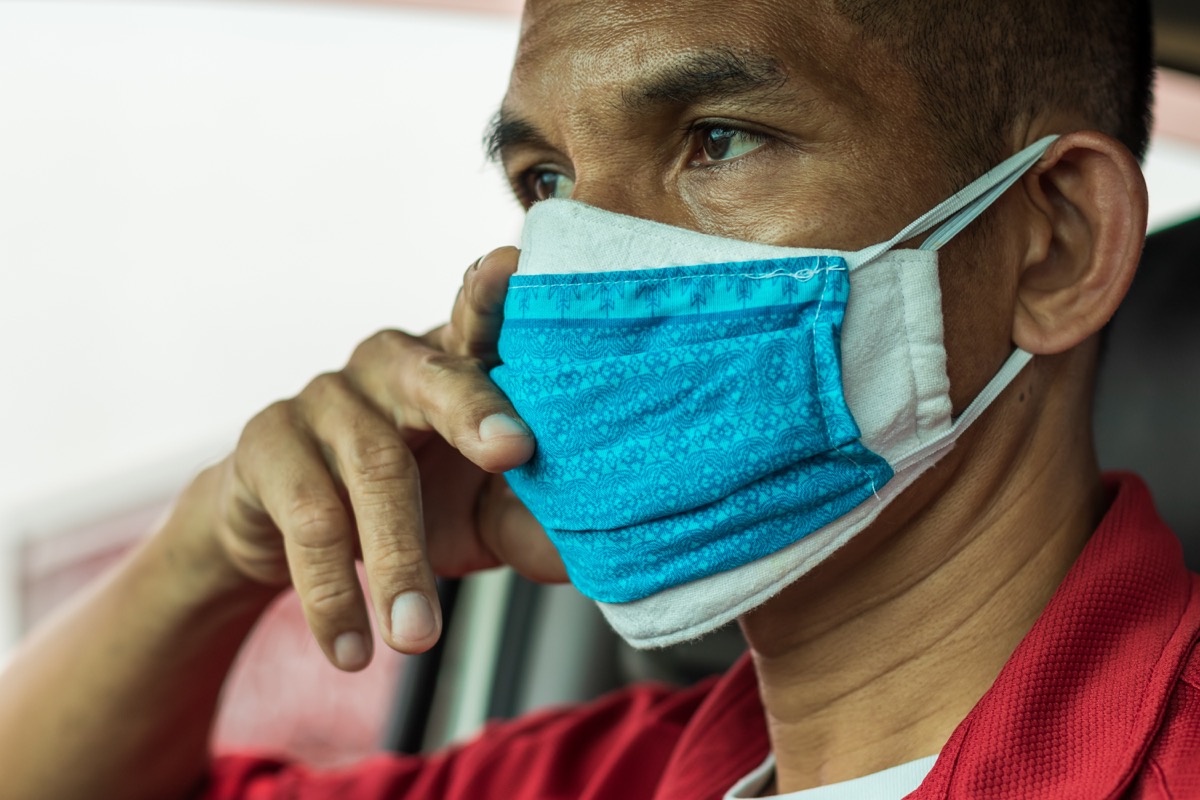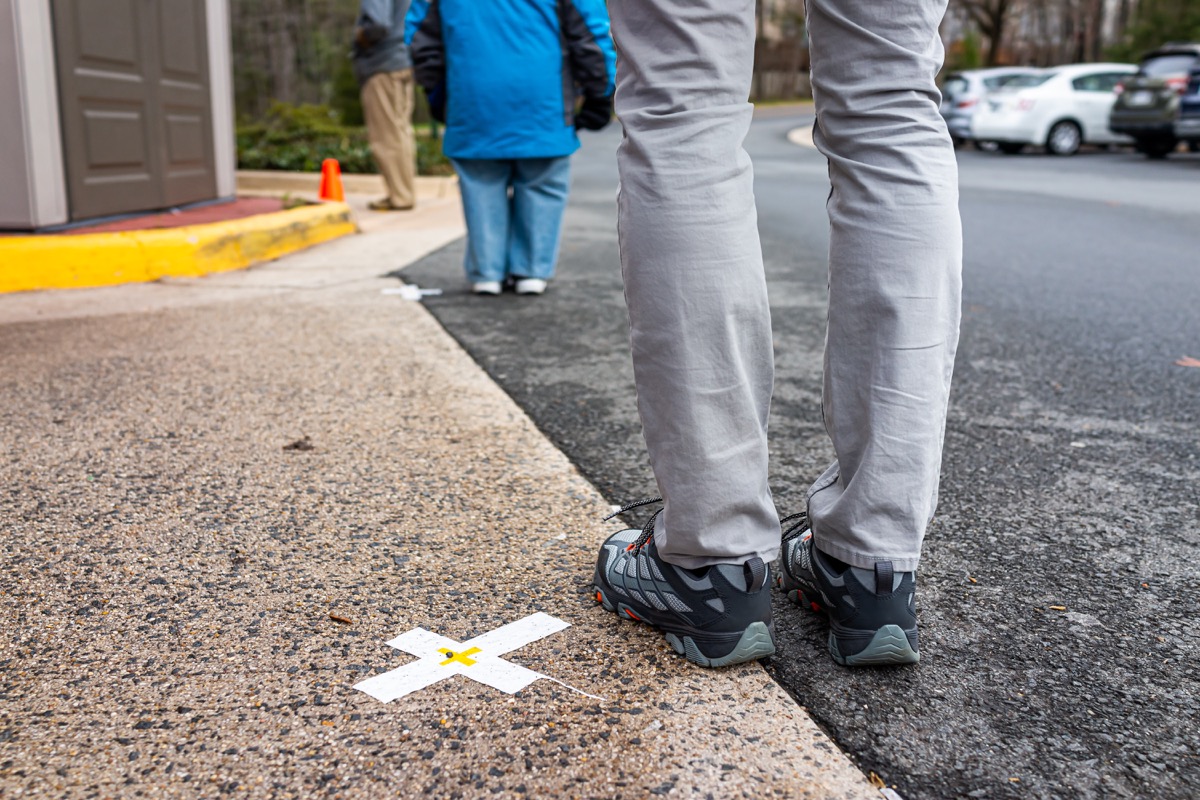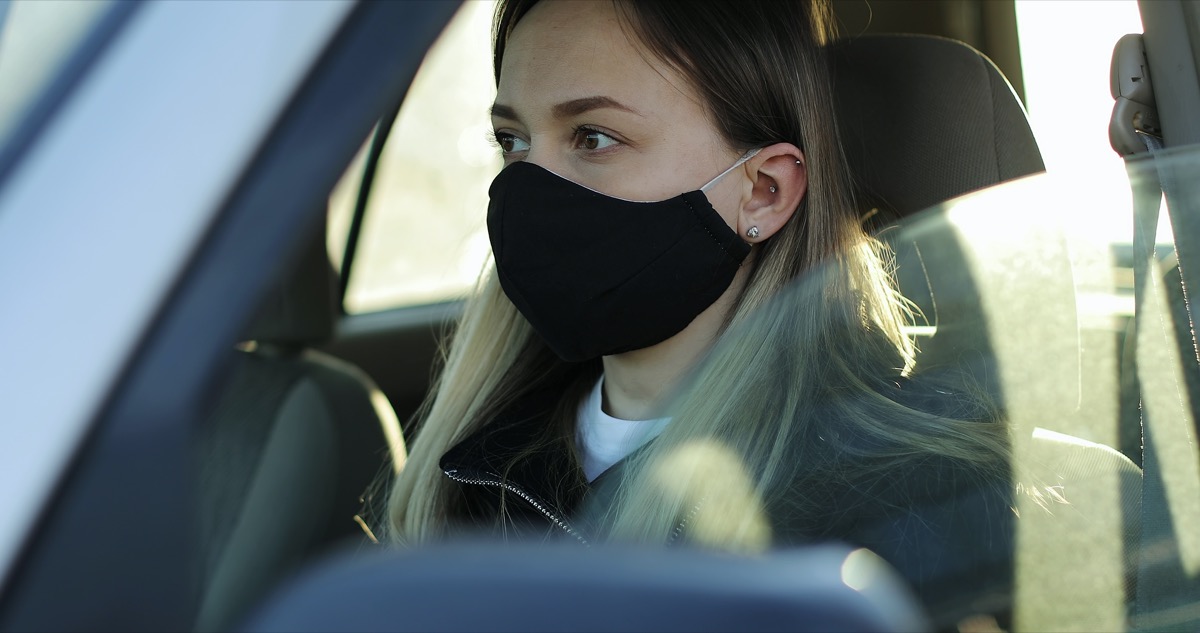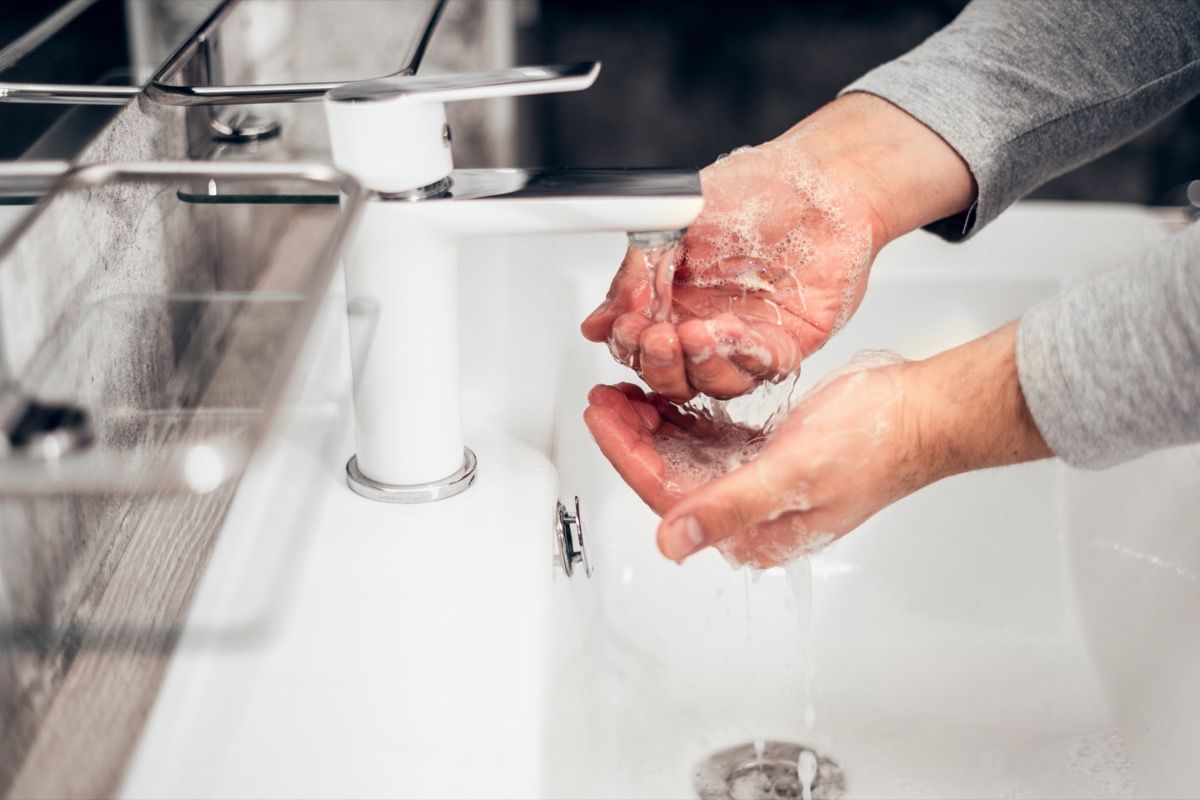According to a preprint of the study by BioNTech, which has not yet been peer-reviewed, the Pfizer-BioNTech COVID vaccine appears to be capable of providing immunity against B.1.1.7 to those who receive it. The research, conducted by scientists in the translational oncology department the University Medical Center of the Johannes Gutenberg University in Mainz, Germany, found that the vaccine provided equivalent protection against a lab-originated U.K. variant as it did the non-mutant form of the virus. According to the study’s authors, this will make it “very unlikely that the U.K. variant viruses will escape” immunity conferred by the Pfizer-BioNTech vaccine. However, that’s not the only way you can reduce your risk—read on to discover the steps that can help you avoid the new U.K. strain. And for another tip on staying safe, check out You Need to Carry 2 of These at All Times Right Now, CDC Says. While wearing a mask when you’re outside of your home provides you and those around you some protection against COVID, wearing two is even better. According to Linsey Marr, PhD, a virus transmission expert at Virginia Tech and co-author of a Jan. 2021 report published in CellPress, by layering masks, “you start achieving pretty high efficiencies” against COVID spread. And for more on the masks you shouldn’t wear, check out The CDC Warns Against Using These 6 Face Masks.ae0fcc31ae342fd3a1346ebb1f342fcb While wearing a mask is essential when it comes to stopping the spread of COVID, doing so doesn’t mean you don’t have to maintain your distance from others. According to a Jan. 2021 study conducted by researchers at the University of Vermont, mask wearers who ignored social distancing recommendations were actually more likely to develop COVID than those who didn’t wear masks but had fewer social contacts. And for more on signs you could be sick, know that If You Notice This in Your Mouth, You Could Have COVID, Experts Warn. If you’re riding in a car with someone outside your household, it’s essential that you also keep the windows open to encourage adequate airflow. However, a study published in Science Advances reveals that opening the window next to you might not be the best course of action—instead, the study’s authors state that opening the window farthest from you “appears to give better protection.” And for the latest COVID news delivered straight to your inbox, sign up for our daily newsletter. You may think you’re washing your hands enough to protect against COVID, but research says otherwise. According to the CDC, 29.4 percent of people forget to wash their hands prior to eating in a restaurant; 28.8 percent don’t wash them after coughing, sneezing, or blowing their nose; 25.6 percent don’t wash them before eating at home; 14.3 percent don’t wash them before preparing food at home; 10.4 percent don’t wash them after using the bathroom at home; and 5.2 percent don’t wash them after using public bathrooms—all critical times to practice hand hygiene to stop COVID’s spread. And for more on what you can stop doing to avoid the virus, check out These 2 COVID Precautions May Not Be Necessary After All, New Study Finds.



